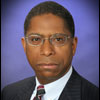01 Feb 2008 Is a Black Leader Best for Black Voters? by B.B. Robinson, Ph.D.
 Senator Barack Obama’s success on the campaign trail has presented Americans with the first truly viable black presidential candidate. This unprecedented situation has made some wonder whether race should trump other traditional criteria in selecting a commander-in-chief.
Senator Barack Obama’s success on the campaign trail has presented Americans with the first truly viable black presidential candidate. This unprecedented situation has made some wonder whether race should trump other traditional criteria in selecting a commander-in-chief.
Using a more traditional criteria such as economics, for example, people support candidates they believe will help improve their bottom line. This could mean tax breaks for individuals, families and businesses or better and cheaper health care or education through increased spending. In this situation, people are more likely to support a candidate they believe will enhance their economic outcome.
But what about making support for “one of our own” the deciding factor?
Can blacks be secure in the belief that a black politician can enhance their economic outcomes simply due to their race? It would imply that either this politician can create circumstances under which “all boats are lifted” or that this leader’s policies would be biased in favor of fellow blacks.
Considering that the latter is politically tone-deaf, it should logically be discounted.
So let us return to the notion of “lifting all boats.” While good for all, it could be interpreted as meaning no relative improvement in black-versus-white economic outcomes. Can black Americans, still below the national average, continue to accept this status quo? Aren’t black Americans interested in closing gaps in areas such as education, employment, income and saving?
With the absence of a crystal ball, there is no way to tell how any future leaders will govern. History, on the other hand, allows us to assess the progress of past black politicians.
Using data from the U.S. Census Bureau compiled after 1980, indications of the change in black-white income gap can be tracked during the tenure of some black officeholders. For example, the gap in Virginia decreased by 2.9 percent in the 1990s and 7.8 percent nationally. L. Douglas Wilder served as Virginia’s governor between 1990 and 1994. In Los Angeles, the gap shrunk by 0.4 percent (while shrinking 9.9 percent nationally) during the 1980s and 1990s. Tom Bradley was mayor of Los Angeles between 1973 and 1993. The trend was behind the national average, but progress in shrinking the income gap between blacks and whites was achieved.
Things did not go as well in Chicago for Mayor Harold Washington, where the gap grew 2.5 percent during the 1980s while it shrunk 2.2 percent nationally (Washington served between 1983 and 1987). Similarly, Coleman Young, mayor of Detroit between 1973 and 1993, saw the income gap grow 8.8 percent during the same 2.2 percent shrinkage of the 1980s.
It’s truly a mixed result. While the national trend has been toward a closing of the black-white income gap for each period under consideration, black administrations have produced differing outcomes that have both increased and decreased the gap within the borders of their authority (although still not matching the national trend).
One thing the data does seem to indicate is that, in the case of black officeholders, their election does not come with a guarantee of a closing of the black-white income gap for their constituents. For that, it would tend to be better for people to stick to a colorblind analysis of candidates to find who best would serve their agenda on both economic and the other issues that are important to them.
# # #
B.B. Robinson, Ph.D. is a member of the national advisory council of the black leadership network Project 21. You can visit his website at www.blackeconomics.org. Comments may be sent to [email protected].
Published by The National Center for Public Policy Research. Reprints permitted provided source is credited. New Visions Commentaries reflect the views of their author, and not necessarily those of Project 21 or the National Center for Public Policy Research.




